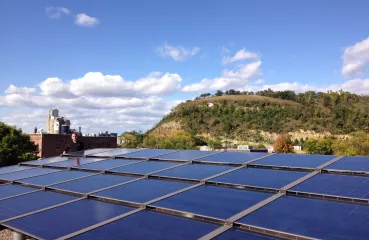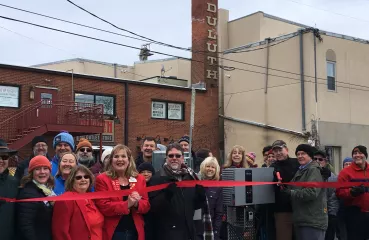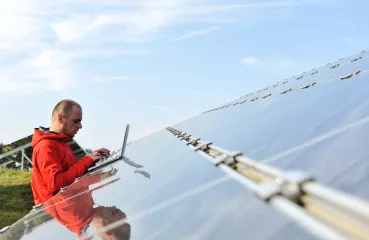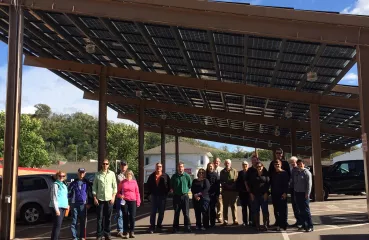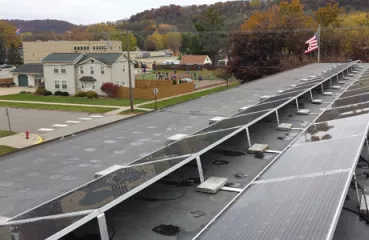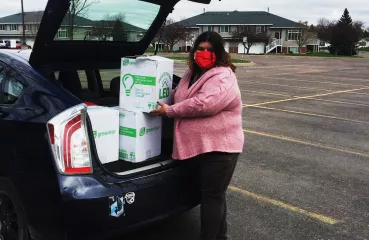Northfield’s Beth Kallestad said the city splits her time between sustainability and equity and inclusion. Before joining the city of Northfield’s staff, she worked at the University of Minnesota-Extension’s Rochester office as a civic engagement educator. For the decade prior, she served as an analyst and eventually the executive director of the Cannon River Watershed Partnership.
In 2017 Northfield developed a strategic plan with six priorities, among them "Climate Change Impacts" and "Equity and Inclusion." She manages both areas. “Climate change impacts and diversity, equity, and inclusion didn’t have a good home, and they crossed a lot of departments,” Kallestad said.
Today the sustainability portion of her job focuses on the city’s Climate Action Plan, which passed last November. Immediate internal steps include studying how the city can improve efficiencies in its building stock and exploring renewable energy options, she said.
Northfield participates both in GreenStep Cities and Xcel Energy’s Partners In Energy program. She monitors GreenStep progress and promotes Xcel’s energy audits to homeowners and commercial businesses, highlighting for them the utility’s various efficiency programs.
Since most of Northfield’s greenhouse gas emissions come from buildings, Kallestad also meets with representatives of large electricity consumers, such as the city’s two colleges and a handful of large industrial businesses.
In the coming years, she wants to promote the adoption of more renewable energy and hold more electric vehicle ride-and-drive events to encourage their adoption. The city is looking at adding EV chargers to hasten transportation electrification, too.
Sustainability is a big order of business in Northfield, and the budget remains limited, she said. Looking at all the city’s sustainability issues, Kallestad believes the hardest one will be to move homeowners away from the most popular heating fuel. “Reducing natural gas consumption will be our biggest challenge,” she said.




